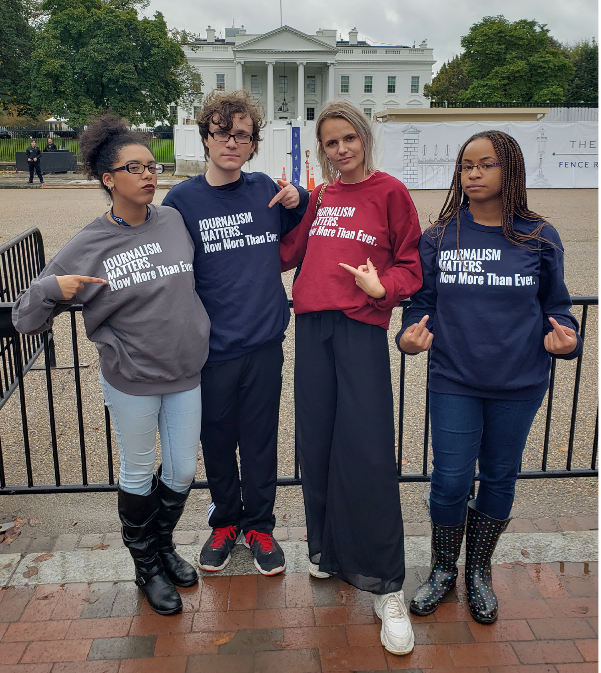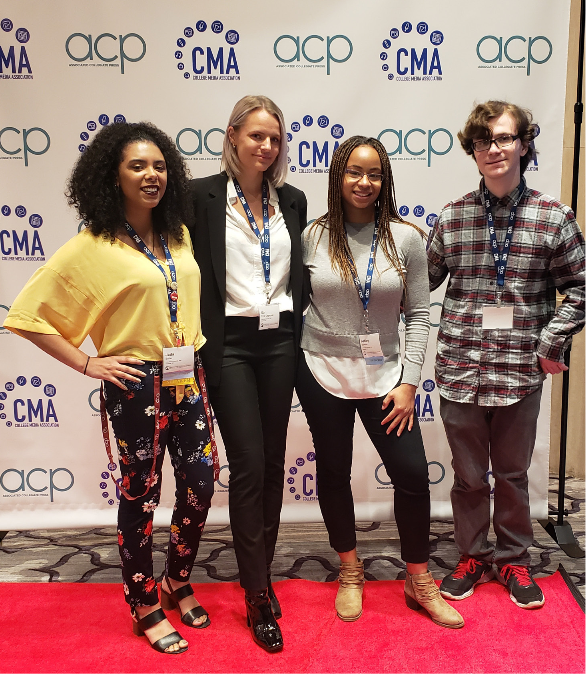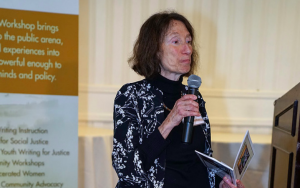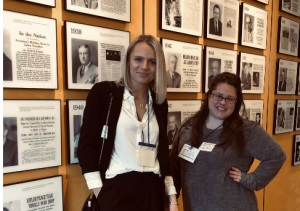By Members of the Editorial Board
Members of the Pioneer editorial board attended the National College Media convention hosted by the College Media Association and the Associated College Press from Thursday, Oct. 31 to Sunday, Nov. 3 in Washington D.C.
A total of 1,600 attendees from both public and private college and university publications across the country, including advisors and student editors, had the opportunity to attend a variety of informative panels.
They also had the chance to listen to several keynote speakers at the event, including Marty Baron, the executive editor of the Washington Post, Nina Totenberg of National Public Radio, Abby D. Phillip, political correspondent for CNN and Rick Hutzell, editor-in-chief of the Capital Gazette.
Some of the most valuable panels we attended gave insight on how to improve your own publication. We learned tips ranging from teaching staff members and ourselves to edit our own work for the best quality and most accurate stories, to increasing readership through our newsletter (subscribe to LIUPioneerNewsletter@gmail.com).
It was also a great opportunity to hear the opinions and experiences of other college editors going through similar motions as we are. We had a unique and enlightening “Editor Therapy” session, which allowed us to break down our tension and talk through problems collectively.
One particularly helpful panel taught us how we can get inspiration for stories from just about anywhere even a phone book. We were tasked with coming up with three story ideas based on a random page from a phone book. This exercise gave a new perspective to newsgathering and inspired some new stories and themes for upcoming issues.
Some panels we attended covered how to land a job in the media industry today. The panelists’ key advice was to build relationships and network with people within the field. Real workplace experience and passion for the profession are key to a successful career.
Some best practices when entering the industry, whether it be for a local media organization, or one of the major organizations, is to say yes to every opportunity. Baron, from the Washington Post, said hiring managers look for journalists who are enthusiastic, energetic, creative and curious about the world.
The keynote speakers were from various branches of the industry, including local newspapers, large digital and print media, radio and television news. The theme that echoed from each speaker was that journalism is not a normal profession, and that we will witness things that are unnatural. “We have a front seat on life,” Hutzell said. Totenberg said journalism is the first draft of history. As journalists, we will witness life.
We gained new skills, strategies and tricks to develop as young journalists, but most importantly, we gained an understanding of the profession we have chosen. As journalists, we will put ourselves at risk sometimes. When everyone else runs from a scene, we will be running towards it. People will not always like us or what we write or say some people might even hate us. We will be put in uncomfortable situations. We will witness pain, fear and death. But we will also get to witness happiness, kindness and love. Despite it all, we persist.








Be First to Comment